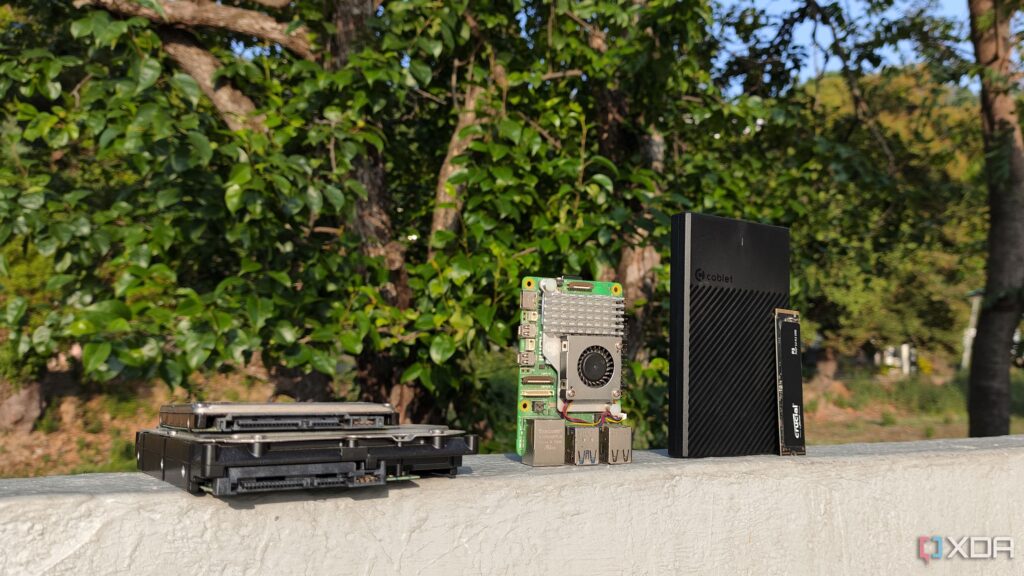
URGENT UPDATE: Experts are issuing a strong warning against using the Raspberry Pi as a dedicated Network Attached Storage (NAS) device, despite its versatility in various computing projects. While the Raspberry Pi has gained popularity for tasks like file-sharing servers, the limitations of its hardware make it unsuitable for high-demand storage applications.
Many tech enthusiasts have turned to the Raspberry Pi for its energy efficiency and compatibility with a range of projects, including print servers and media centers. However, the latest insights reveal that aspiring NAS users may be better off seeking dedicated solutions instead.
Just announced findings indicate that while the Raspberry Pi can run OpenMediaVault for basic file sharing, it lacks the robust capabilities required for serious data management. Users may experience significant performance issues, particularly when relying on USB ports for connecting hard drives, which can lead to data corruption during heavy transfers.
The limitations of the Raspberry Pi’s hardware are becoming increasingly clear. Users aiming to set up a NAS typically require SATA ports to handle high-capacity hard drives, but the Raspberry Pi’s architecture doesn’t support this efficiently. Experts warn that using multiple USB drives can cause performance bottlenecks, leading to random freezes and unreliable data transfers.
Despite the community efforts to enhance the Raspberry Pi’s functionalities with HATs—add-on boards that provide additional ports—these solutions can be costly. The price of a modern Raspberry Pi setup can easily exceed $200 when factoring in necessary accessories like active coolers and power cables.
In an alarming twist, even traditional SSDs may underperform due to the Raspberry Pi’s limited 1 Gigabit networking port, which can throttle transfer speeds significantly. As experts point out, this limitation is a major drawback for users who expect fast, reliable performance from their NAS systems.
The findings are garnering attention within the tech community. Tailscale, a popular solution for secure remote access, has been used by some as a secondary backup option for Raspberry Pi setups. However, users quickly realize that while the Raspberry Pi is energy efficient, it simply cannot match the performance of dedicated storage servers.
As the tech landscape evolves, the demand for reliable data storage solutions is more pressing than ever. Experts recommend that those considering a NAS invest in a pre-built storage server that can deliver superior performance, enhanced transfer speeds, and future upgrade potential.
The conversation around the Raspberry Pi’s limitations as a NAS is gaining traction on social media, with many sharing their experiences and frustrations. This growing dialogue highlights the importance of choosing the right tools for the job, especially when it comes to safeguarding valuable data.
Next Steps: For individuals and organizations looking to set up effective storage solutions, experts advise exploring dedicated NAS options that meet specific needs without the complications associated with Raspberry Pi setups. As technology advances, staying informed about the best practices and tools available is crucial for ensuring data integrity and operational efficiency.
Stay tuned for further updates as the tech community continues to navigate the challenges and opportunities presented by these versatile devices.






